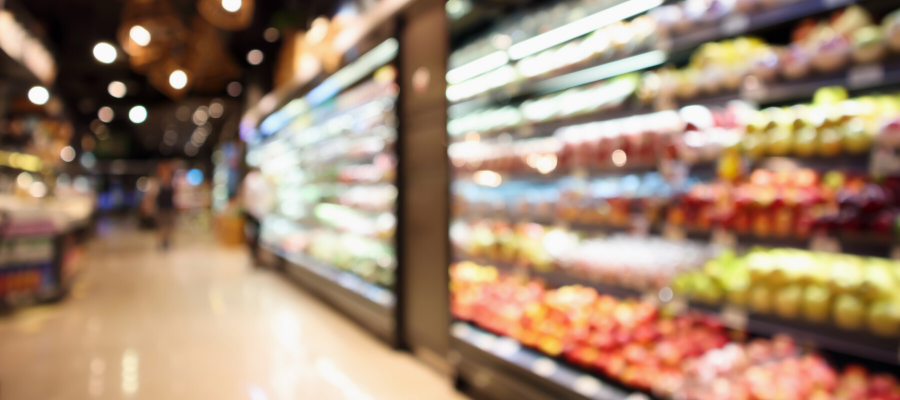Animal Rights
May 11, 2004We shouldn't be mean to animals. Is that because animals have rights, like people do? Or is it just because people care about animals?

Veganism, freeganism, organic, sustainability, simplicity, biofuel, animal rights, worker's rights, nutrition, preventing hunger, reducing waste and protecting the environment. What obligations do we have when it comes to buying, eating and producing food? How should we balance moral and practical concerns? John and Ken chew on these questions with Michael Pollan from the UC Berkeley School of Journalism, author of The Omnivore's Dilemma and In Defense of Food.
Is food consumption merely a means to an end, or is the pleasure of eating an end in itself? How do you determine what you eat, and why does it even matter? John and Ken have a lot to say on the subject, and expert Michael Pollan joins in. Pollan explains how a feedlot on I-5 and a mechanized potato farm changed his thoughts on food. Most of us are aware that there are many hungry people in the world, but Pollan explains that the problem is not a lack of food—there is enough food produced everyday for each human being to receive 3,000 calories. Rather the problem lies in distribution and availability. Pollan also explains why cheap food is not as cheap as it appears, and predicts that the era of inexpensive food was an anomaly that will soon come to an end.
John raises a concern: can you be ethical about your food and not lose the pleasure of eating? Pollan assures him that thinking about food does not negate the pleasure of eating—on the contrary, such thinking increases it. Callers raise concerns of their own, wondering whether the world could be fed under a sustainable system, whether the Chinese have the right mind set about food, and whether everybody should be required to kill a cow. Pollan makes a suggestion to everyone with a front lawn, and John has a few things to say about the idea of a giant chicken breast in Kansas.
Ken wraps up the discussion with the question of whether we’re really wise enough to improve upon nature. Pollan argues that yes, we can improve upon nature, but a little epistemic humility is in order. Find out what public health officials got wrong, how your mindset can affect the calories you derive from your food, and why our knowledge of nutrition today can be compared to our knowledge of surgery in 1650.
Ken Taylor
Hello, and welcome to Philosophy Talk, the program that questions everything...
John Perry
...except your intelligence. I'm John Perry.
Comments (4)
rayn
Sunday, February 16, 2025 -- 4:20 AM
Thank you for this article!Thank you for this article!
NinaDov7
Tuesday, February 18, 2025 -- 6:08 AM
It’s fascinating to thinkIt’s fascinating to think about how the food we eat can have ethical implications, from how it's produced to who it affects. That’s why choosing foods that align with your values is becoming increasingly important. If you're someone who enjoys sweets but wants to make more mindful choices, I've found that choc zero offers some delicious options without the guilt. Their products are low in sugar and made with natural ingredients, which is a great option for those trying to balance taste and ethical eating. Definitely worth checking out if you’re looking to satisfy your sweet tooth in a more thoughtful way!
saba0014
Thursday, April 10, 2025 -- 7:50 AM
This conversation beautifullyThis conversation beautifully highlights the deeper ethics behind our food choices. Michael Pollan’s insights really resonate especially the idea that mindful eating can enhance pleasure, not diminish it. As someone passionate about simple, sustainable cooking, I believe we can balance enjoyment with responsibility. At Feast Recipes Guide , I try to share recipes that are both accessible and rooted in mindful practices. The discussion on local food systems was especially inspiring it's a reminder that change begins right in our kitchens. Thank you for such a rich and thought-provoking episode!
shafiglucochem
Monday, April 14, 2025 -- 12:33 AM
This conversation reallyThis conversation really highlights something we often overlook: that food is never just fuel. It’s deeply cultural, emotional, ethical—even philosophical. I completely agree with Pollan’s point that thinking more deeply about where our food comes from and how it’s made doesn’t take away the joy of eating—it actually enriches it.
Food decisions are increasingly about alignment with values. Whether it's sustainability, health, or local sourcing, people are asking more meaningful questions like: How was this made? Who made it? What impact does it have? As someone working in the food ingredients space at Shafi Gluco Chem, I see firsthand how these values are shaping demand—for example, in the growing interest around plant-based and allergen-free alternatives.
A great example is rice-based products. Many are now wondering where to buy rice milk powder, not just because it’s dairy-free, but because it’s cleaner, more sustainable, and versatile across food categories. These shifts show how food is no longer just about what’s on our plate—it’s a reflection of what we believe in.
Really enjoyed this discussion. It’s a reminder that food can be both pleasure and principle—and that’s where real nourishment begins.